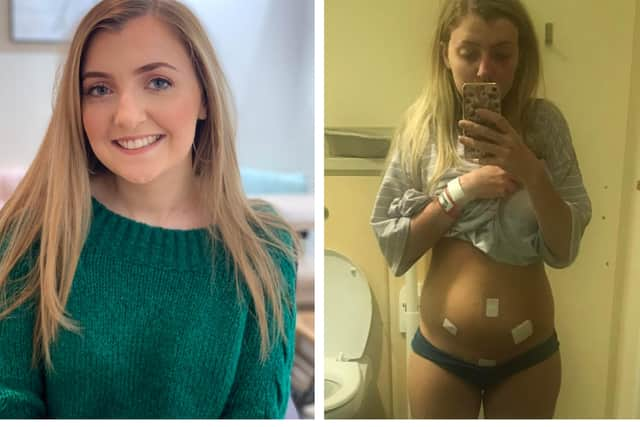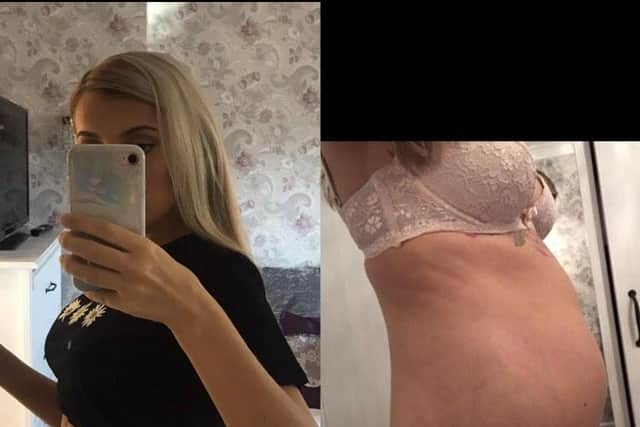Brave Leighton Buzzard woman fighting for greater awareness about endometriosis
and live on Freeview channel 276
When she was just a teenager Lucy Aguilar, now 21, was told by doctors that the terrible period pain she was feeling was “just what women go through”, and even more worryingly, that pregnancy would be the future “solution”.
She began to suspect that the pain was instead being caused by a condition called endometriosis, which causes tissue, similar to the lining of the womb, to start growing in places such as the ovaries and fallopian tubes.
Advertisement
Advertisement
Lucy was diagnosed with endometriosis aged 17, but was still advised that preganancy would solve her problems.


She said: “It just makes me so angry.
“I’m lucky in a way that my mum has it; there may be other women who go to the doctors and get fobbed off.
“I remember her being so shocked.
“I got told to have all of my children by the time I’m 30. They just generalised it - like one day having a child would help clear it all out.


“My mum said: ‘Lucy that’s not a cure. Having a baby for some people can help, but it never goes away’.”
However, Lucy and her family kept pushing forward.
Advertisement
Advertisement
The bright student earned a place at Loughborough University to study English Literature, despite having missed “weeks and weeks” of classes at Vandyke Upper School.
Lucy said: “I first started experiencing symptoms aged 12 or 13, and was put on the pill at 14 to try and control them. I would pass out, throw up, and spend evenings in A&E. I would leave school in agony.
“But my teachers were really, really understanding.”
When Lucy received her diagnosis, she was informed that her ovary was stuck to her womb, so she was given ablation surgery to laser off the top layer of the endometriosis.
The operation offered relief for a few years, but in November 2019 Lucy’s life “totally changed” when a cyst on her right ovary ruptured.
Advertisement
Advertisement
Lucy said: “I’d leave lectures early in floods of tears, cancel all my plans with my friends and take the maximum dose of codeine every day. I don’t know how I got through my final year at uni.”
In a bid to help, Lucy was put through a medically induced menopause for seven months. Her hair fell out, she was “smothered in spots”, and she spent four days in hospital to manage the pain.
Mercifully, on October 13, Lucy was able to have excision surgery to remove her endometriosis after her parents paid for her to go private. Unlike ablation surgery, with excision the endometriosis is cut out from the root.
But Lucy explained: “There is no cure for endometriosis - it can be removed and symptoms can be managed but it continues to grow.”
Advertisement
Advertisement
Lucy is now on the road to recovery and hopes that the endometriosis won’t rear its head for a while. However, she is now on a mission to call for earlier diagnosis, easier access to excision surgery on the NHS, and better education for both the public and medical professionals, following the publication of an All-Party Parliamentary Group inquiry report for endometriosis.
The report stated that on average it takes eight years to get a diagnosis; ten years ago it was seven.
Lucy concluded: “This has been the toughest year of my life and I am one in 10. There are millions of other women suffering and more needs to be done.”